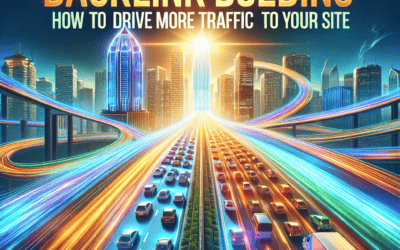Search engine optimization (SEO) plays a vital role in the success of your online business. One of the key elements of SEO is on-page optimization, which involves optimizing various aspects of your website to improve its visibility in search engine results pages. In this article, we will explore the importance of on-page SEO and provide you with practical tips on how to master it to rank higher in search engines.
Why On-Page SEO Is Important
On-page SEO is crucial because it tells search engines what your website is about and helps them understand the relevance of your content to users’ search queries. By optimizing your on-page elements, you can boost your website’s ranking in search engine results pages and attract more organic traffic to your site. Here are some key reasons why on-page SEO is important:
1. Improved Website Visibility
By optimizing your on-page elements, such as title tags, meta descriptions, and headers, you can improve your website’s visibility in search engines. When your website ranks higher in search engine results pages, it is more likely to be seen by users searching for relevant keywords and phrases.
2. Higher Click-Through Rates
Optimizing your on-page elements can also improve your website’s click-through rates. When users see compelling and relevant title tags and meta descriptions in search results, they are more likely to click on your website and explore your content further.
3. Better User Experience
On-page SEO also contributes to a better user experience on your website. By optimizing your website’s content and structure, you can make it easier for users to navigate and find the information they are looking for. This can lead to higher engagement and conversion rates.
Practical Tips for Mastering On-Page SEO
Now that you understand the importance of on-page SEO, let’s dive into some practical tips on how to master it to rank higher in search engines:
1. Conduct Keyword Research
Keyword research is the foundation of any successful SEO strategy. By identifying relevant keywords and phrases that your target audience is searching for, you can optimize your on-page elements to attract organic traffic to your website. Use tools like Google Keyword Planner, SEMrush, and Ahrefs to conduct keyword research and identify high-volume, low-competition keywords to target.
2. Optimize Title Tags and Meta Descriptions
Title tags and meta descriptions are the first things users see in search engine results pages, so it’s essential to optimize them for relevancy and clickability. Make sure to include your target keywords in your title tags and meta descriptions and write compelling and descriptive copy that entices users to click on your website.
3. Use Headers and Subheaders
Headers and subheaders not only help organize your content but also improve the readability and SEO of your website. Use H1 tags for your main title and H2, H3, and H4 tags for subheaders to structure your content logically and signal to search engines the importance of your keywords.
4. Optimize Images
Images play a crucial role in on-page SEO, so it’s essential to optimize them for search engines. Make sure to use descriptive file names and alt text for your images and compress them to improve your website’s loading speed. This can help improve your website’s ranking in image search results and attract more organic traffic.
5. Create High-Quality Content
High-quality content is key to ranking higher in search engines. Create informative, engaging, and relevant content that provides value to your target audience. Use your target keywords strategically throughout your content and make sure to address user intent to improve your website’s visibility and relevance in search engine results pages.
6. Optimize URLs and Internal Links
Optimizing your URLs and internal links can also improve your website’s on-page SEO. Use descriptive URLs that include your target keywords and create a logical internal linking structure to help users navigate your website and improve your website’s crawlability by search engines.
Conclusion
Mastering on-page SEO is essential for ranking higher in search engines and attracting more organic traffic to your website. By following the practical tips outlined in this article, you can optimize your on-page elements to improve your website’s visibility, click-through rates, and user experience. Remember that SEO is an ongoing process, so continue to monitor and update your on-page elements to stay ahead of the competition and improve your website’s ranking in search engine results pages.
Looking for small business SEO services? Check out our guaranteed to rank SEO Services
Check out all our Digital Marketing Services
SEO Strategy Call




0 Comments